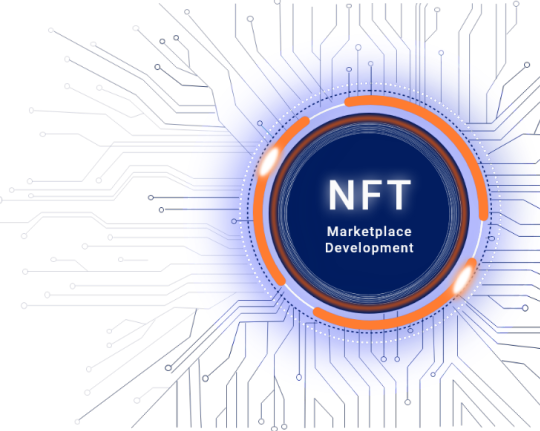Don't wanna be here? Send us removal request.
Text
NFT Marketplace Development
NFT marketplace development involves creating an online platform for buying, selling, and trading unique digital assets. Steps include defining the project scope, selecting a blockchain platform, developing smart contracts, designing a user interface, building the backend and front end, integrating wallets, testing for security, and deploying and maintaining the marketplace. Expertise in blockchain development, smart contract programming, web development, and user experience design is crucial. Collaboration with experienced developers may be necessary to ensure a successful NFT marketplace launch.

To read more on NFT marketplace development check here
0 notes
Text
Enterprise Blockchain Solutions Development
Enterprise blockchain solutions development involves designing and implementing blockchain-based solutions for businesses. Steps include identifying use cases, defining requirements, selecting a blockchain platform, designing the architecture, developing smart contracts, building the blockchain network, integrating with existing systems, testing, deploying, and providing ongoing support. Expertise in blockchain technology, cryptography, and programming languages like Solidity or Go is crucial. Collaboration with domain experts and experienced blockchain developers is important for success.
To read more on enterprise blockchain solutions development check here
0 notes
Text
How To Implement Blockchain In Your Fintech App

In recent years, blockchain technology has gained popularity in the financial sector due to its decentralized and secure nature, making it an ideal solution for fintech applications. If you're considering implementing blockchain in your fintech app, there are several important factors to keep in mind.
First, it's essential to understand the basics of blockchain technology, which involves a digital ledger that records transactions in a secure and transparent manner. It is decentralized, making it difficult to hack or corrupt the system.
Choosing the right blockchain platform is also critical, and factors such as scalability, security, and ease of integration should be considered. Ethereum and Hyperledger Fabric are popular options, each with unique features and benefits.
Implementing smart contracts is another key aspect of using blockchain in fintech apps. These self-executing contracts enforce the rules and regulations of a transaction, making them tamper-proof and transparent.
Ensuring data security is crucial, and additional measures such as encryption and multi-factor authentication can help protect user data from unauthorized access and reduce the risk of data breaches. Compliance with relevant regulations and standards, such as GDPR, is also essential.
Integrating with existing systems and ensuring scalability are other important considerations. Finally, understanding the potential use cases of blockchain technology in fintech apps, such as mobile banking, investment management, lending and borrowing, and budgeting and financial planning, can help you determine the best way to implement it in your app.
2 notes
·
View notes